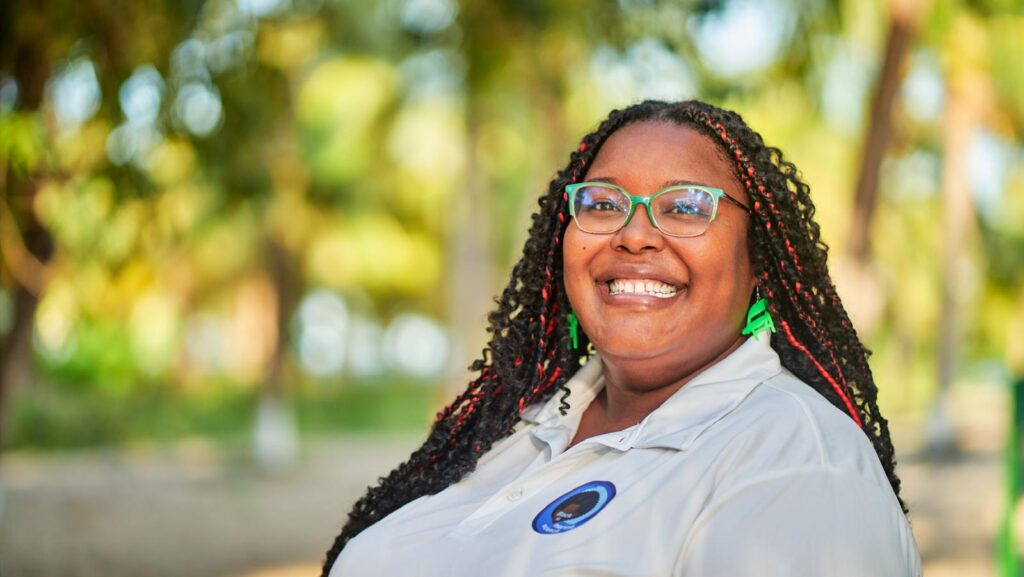Vacationer of the Week: Marine Science Trailblazer Dr. Tiara Moore
As a Queer Black woman scientist, Dr. Tiara Moore is breaking barriers in the marine science field and leading efforts to create diversity and inclusion while advancing ocean and reef conservation.
Dr. Tiara Moore is a Black queer woman advocating through her work as a marine scientist. “We always hear that Black and brown folks are disproportionately impacted by climate change,” she says in an interview with Vacationer, ahead of her annual Black In Marine Science Week (December 1–7 in San Diego). But the powers that be do precious little about it, she notes, even as wealthy white folks continue to travel to places the media speculates have a 2030 expiration date.
When it comes to destructive climate events, it is mostly poor people and people of color who proportionately live in geographically vulnerable locations: low-lying coastal areas, small island nations, and developing countries in regions like the Pacific Rim island nations, South Asia and Southeast Asia, and sub-Saharan Africa.
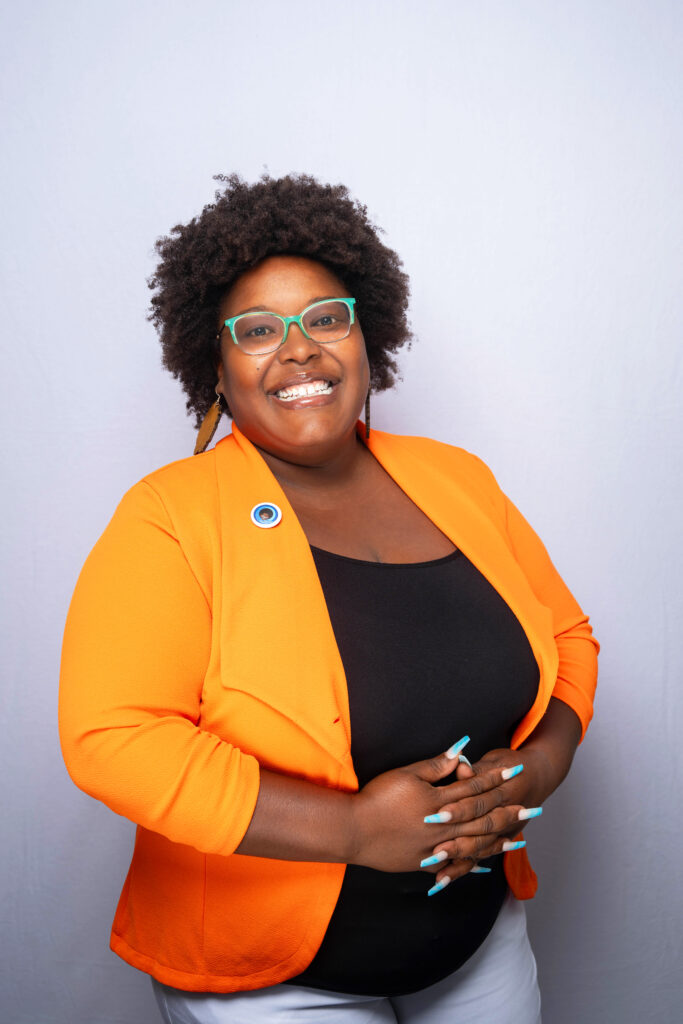
In fact, Dr. Tiara Moore, Founder and CEO of Black in Marine Science (BIMS), lives in one of these places herself: Belize, the second-smallest country in Central America. Located on the mainland and bordered by the Caribbean Sea to the east, Dr. Moore moved there permanently after working there on a coral restoration project and falling in love with her fiancee, Andrea, who is also an ocean conservationist.
What is a ‘marine heatwave’?
Belize has over 450 islands, also known as “Cayes” or “Keys”. These islands are located in the Caribbean Sea and form part of the Belize Barrier Reef, which is the second-largest barrier reef in the world. So naturally, anyone who loves scuba diving, snorkeling, and swimming would love this destination. But it, and many like it worldwide, is under threat. This year was the hottest year on record, and rising sea temperatures have a devastating effect on sea life, especially reefs and coral. Did you know what a marine heatwave is?
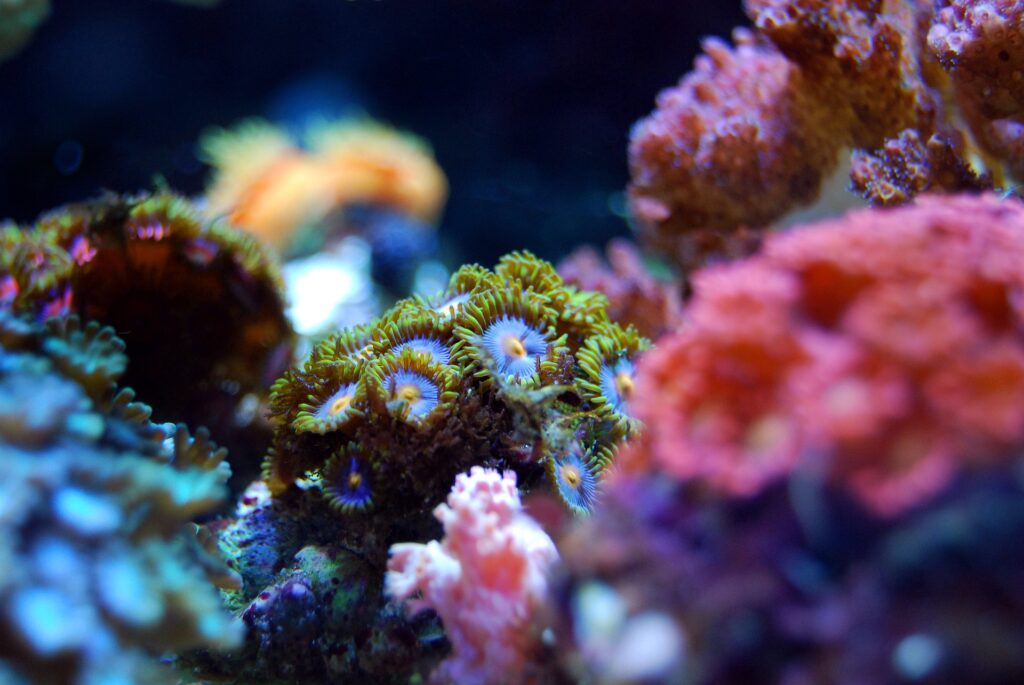
Marine heatwaves can last for weeks, months or even years—much like a land drought. They affect the entire ocean, from the surface to the seafloor and can impact species distribution, ecosystem productivity, and contribute to mortality events for marine life and seabirds.
“What people have to understand is that the reason we aren’t burnt up and dead by now is because the ocean is the absorber of heat,” says Dr. Moore. If the ocean gets too hot and can no longer cool and be cooled, it will lead to more storms, poorer water quality, destroy marine life, cause ocean acidification, coral bleaching, and more.
“Coral has algae that live inside them. When they get too hot, they leave. That’s what coral bleaching is. It loses its relationship with the algae that’s providing its color. If you can imagine sitting in a sauna, how long are you going to sit in the heat? You’ve gotta leave after a while,” Dr. Moore explains. “That’s what we’re seeing: These hot tubs of the ocean now.”
Hurricanes aren’t racist, people are
And when the sea gets too hot to handle itself in its usual way as the earth’s cooling system, it causes super storms like Helene, which travel further inland than ever before, as we saw with its destruction of Asheville, North Carolina, a vibrant tourist town in the Blue Ridge Mountains historically considered safe from hurricanes. We also see places like Louisiana repeatedly hit. Since 2000, that state has weathered 13 hurricanes and as many as 40 cyclones and tropical storms.
It’s not the hurricane that’s racist; it’s the people in the system. The same hurricane hit South Carolina, right? But my grandmother didn’t get power back for two weeks. There were other people who got power back before two weeks. That’s where that injustice comes in. Why didn’t everybody get their power back?” — Dr. Tiara Moore
Dr. Moore has been to the South Pacific and Southeast Asia for her study and research and understands the traveler’s impulse to flock to island nations, from Bora Bora to the Maldives, before they disappear underwater. But you need to be mindful before you go and ask yourself if your trip will positively or negatively impact the destination and its people.
“You do need to do research before you go to these countries. There was time when Hawaii was like, Don’t come here. Please, we can’t take any more visitors!”
Especially after a disaster such as the Maui wildfires, where climate change was a major factor in exacerbating the severity of the fires, and the small community was left in tatters, trying to rebuild. The last thing it needed was pressure from tourists.
How Central Park’s “Black birder incident” was an awakening
Dr. Moore started Black in Marine Science (BIMS) to encourage more Black people to enter the field of ocean conservation, but the initiative had some distinct catalysts.
The lightbulb moment was 2020. “We were in the pandemic, working from home, a racial awakening was happening, and some of my colleagues went from not talking to me to sending me ten dollars for coffee. It was an interesting experience,” says Dr. Moore, recalling that the incident where a white woman called the cops on Black birder Christian Cooper, who simply asked her to leash her dog while he was peacefully birding in New York City’s Central Park, sparked a nationwide reckoning about race and public spaces. The way Cooper handled the situation as a gay Black man, a man of science, and a man who deeply cares about his environment inspired Dr. Moore to do something herself.
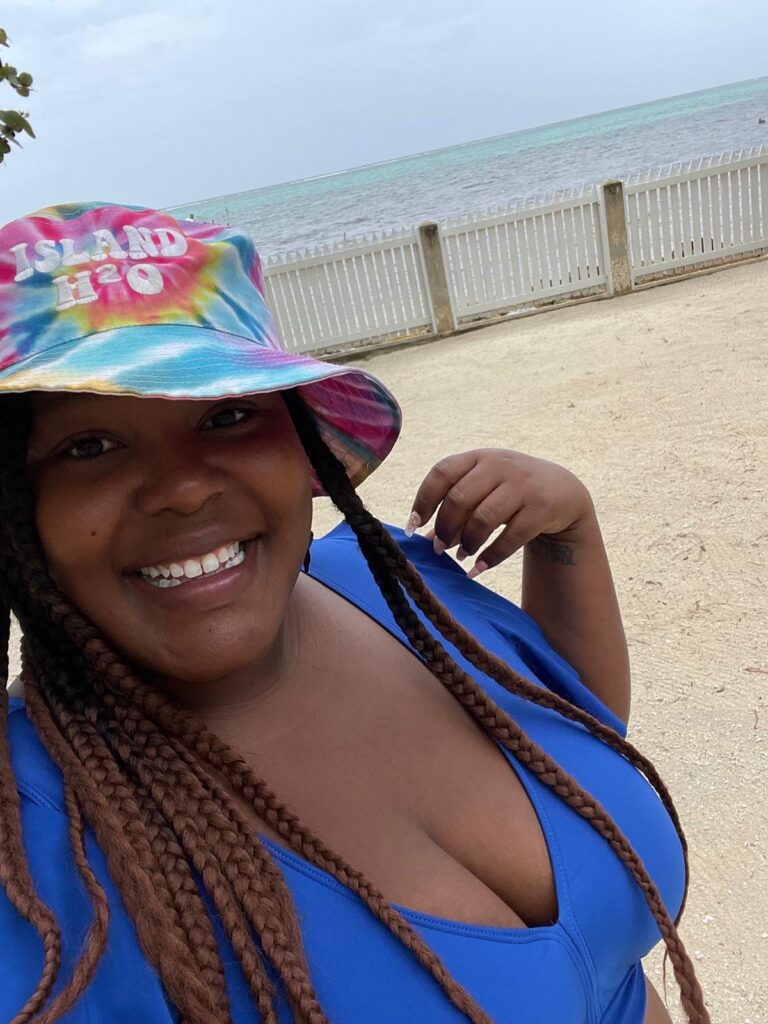
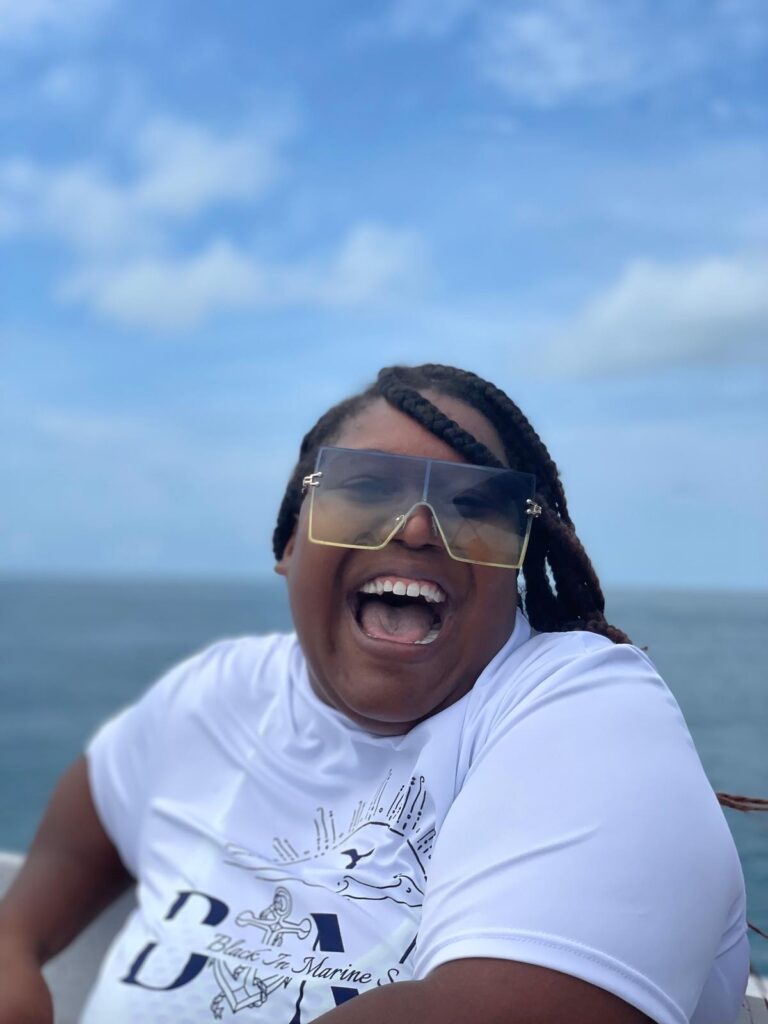
“We actually have Christian coming for our BIMS conference this year in San Diego,” says Dr. Moore. “I reached out and wanted him to be there because of that full-circle moment.”
About BIMS Week
The Black in Marine Science (BIMS) Week conference will occur at Paradise Point Resort in San Diego, California, from December 1–7, 2024. BIMS Week is a professional growth and wellness retreat that offers a variety of activities, including expert-led workshops, seminars, and talks; self-care activities, relaxation spaces, and wellness talks; networking and building connections with peers and mentors; and cultural excursions exploring the local area. BIMS is now a 501(c)(3) nonprofit with over 350 members from 31 countries. Full details are here.
Why Dr. Moore is not getting married in Belize
Belize does not legally recognize same-sex marriages or civil unions. In fact, Belize’s Immigration Act classifies “homosexual” people as “prohibited immigrants”! However, Belize did decriminalize LGBTQ+ identity in 2016, but it is still regarded as a conservative country.
“There are not enough gay folks here to have gay activism,” muses Dr. Moore. “It’s growing in the younger generation. But in my village, me and Andrea are pretty much it,” she says. “No one cares or does anything to us. We’re very welcome and free. But I think at the government level, nobody’s asking, Can the gays get married?’
“I did have this vision of this Belize wedding…but long story short, we’re getting married in Vegas,” she says. However, she loves Belize, which is at the top of her top five travel destinations.
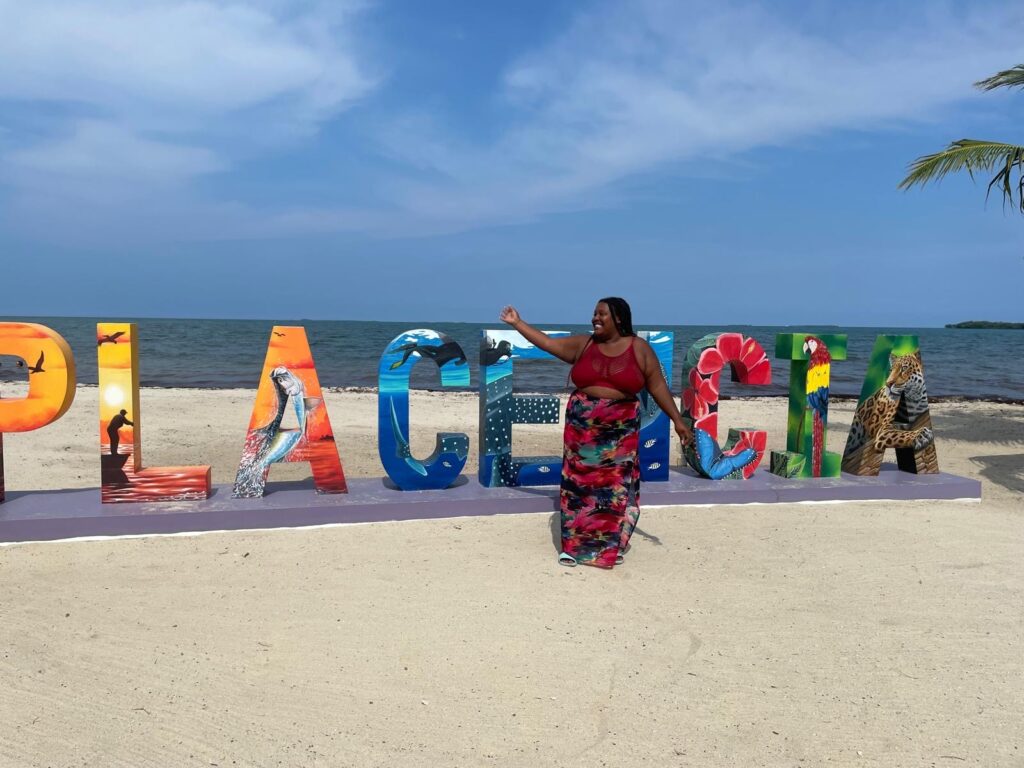
Dr. Moore’s Top 5 travel destinations
- Placencia, Belize
- Bali, Indonesia
- Gqeberha, South Africa
- Madrid, Spain
- St. Croix, Virgin Islands
What to do in Belize
Belize has many attractions for tourists, many natural wonders including: dense jungle and rainforests, tropical islands, and the second-largest barrier reef in the world. The Belize Barrier Reef is part of the Mesoamerican Barrier Reef and is a top destination for divers, snorkelers, and biologists. of course, it is the reef that Dr. Moore is studying and trying to conserve.
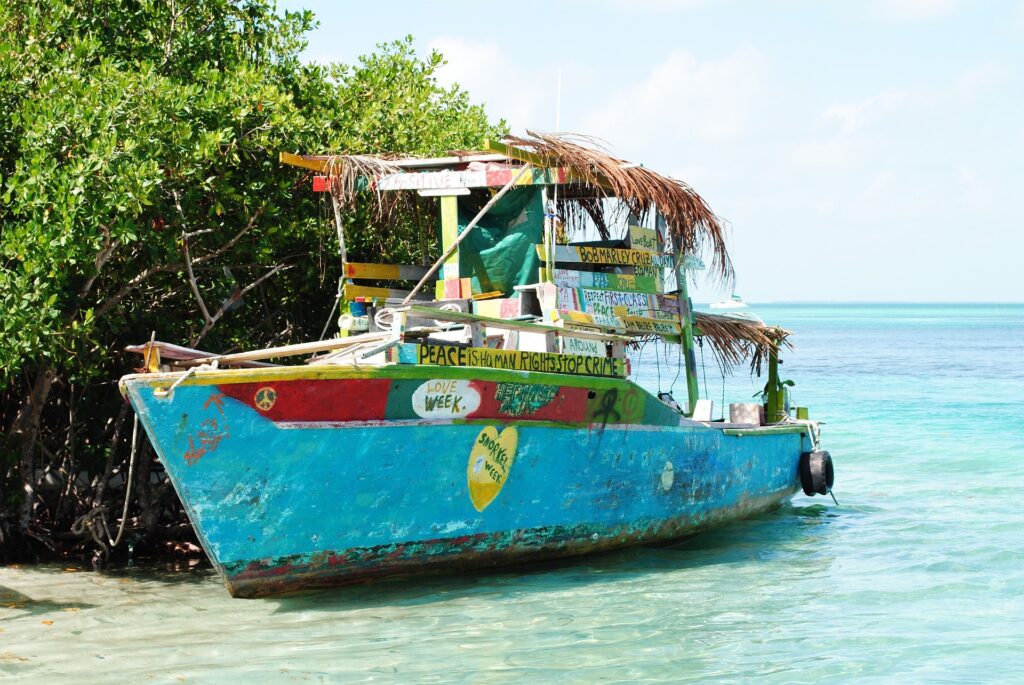
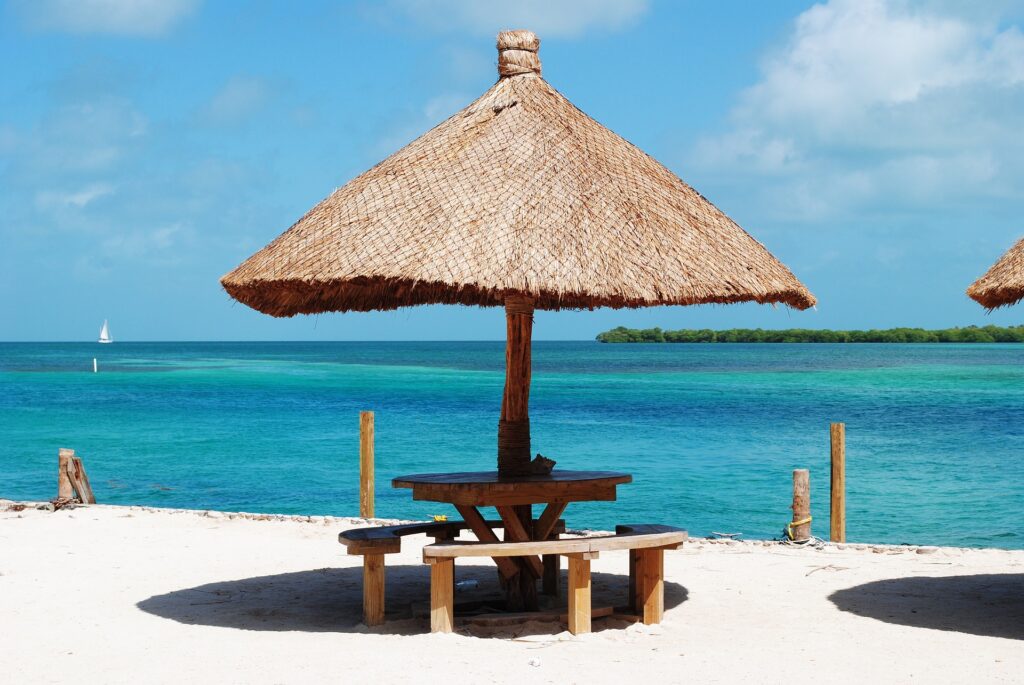
There are literally hundreds of islands, most with white-sand beaches. You can also explore complex cave systems underground. Belize’s cave systems were formed by millennia of erosion caused by rainwater reacting with limestone. This process is called solution and creates a landscape known as a Karst landscape.
Belize also has a total of 35 major and minor river watersheds that drain into the Caribbean Sea, perfect for rafting and inner tubing.
Move aside, Mexico! You can explore ancient Mayan cities and temples where the Maya celebrated rituals. Belize has over 600 ancient Mayan sites, including small mounds and ceremonial caves, many of these sites still buried and unexplored.
And there’s plenty of good eating as the country has abundant seafood and tropical fruits. Try the aromatic Belizean specialties, which reflect the country’s Mestizo, Creole, Mayan, and Garifuna flavors. Some popular Belizean foods include Conch fritters and chowder, Johnny cakes, ceviche, tamales, rice and beans, hudut, cochinita pibil, cassava pudding, and more. Don’t forget to use plenty of habanero sauce and wash it down with a Belikin beer. You’ll even find a curious British influence: meat pies!
More ideas for visiting Belize are here.
About Dr. Tiara Moore
Dr. Tiara Moore, Founder and CEO of Black In Marine Science (BIMS), is a dynamic leader dedicated to creating equity in marine science. With a Ph.D. from UCLA, her research focuses on human nutrient pollution’s effects on marine ecosystems. Using environmental DNA and community engagement, she conducts innovative research while educating impacted communities. Her work has earned recognition from Vogue Magazine, SCUBA Diving Magazine, and the Black Voices for Black Justice Fund. Dr. Moore is featured in Google Arts and Culture and the California Academy of Sciences as a leading Queer Black woman in STEM. She recently received the Coastal and Estuarine Research Federation’s Diversity, Equity, Inclusion, and Justice Champion Award. Dr. Moore leads over $8 million in U.S. National Science Foundation research grants, focusing on nutrient pollution impacts and increasing racial equity in marine science.

